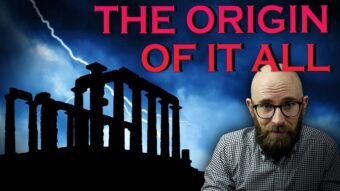“Unraveling the Mysteries: What Sparked the Dawn of Ancient Greece?”
Archaeologically, the spread of dialects is little understood, but the Greeks proposed an explanation for it. Literary sources like Herodotus claim that it all started with the descendants of the hero Hercules, or Herakles in Greek. The Heraklids were originally from the Peloponnese but were exiled. They convinced the Dorics in the North to invade the Peloponnese with them. The joint Heraklid-Dorics invasion pushed the different dialect speakers away from their homes and caused them to shift around and found distant colonies to escape the chaos. Early Mycenaean scholars took this story so seriously, they tried to pin the blame for the bronze age collapse on this Doric invasion. Eventually these Dorics and Heraklids would become the Spartans. Did the Doric invasion happen? Maybe, but if it did, it would have happened during the dark ages, nor during the bronze age collapse.
What about Homer in all this? The society he tried to describe was the Mycenaean one, but as there were no written records, or any way for Homer to know how exactly the Mycenaeans lived, he turned to his present for reference. Scholars infer a lot about Dark age Greece from Homerâs poems rather than Mycenaean Greece. Archaeological records show that the way of life Homer describes falls more in line with the dark age, just a little exaggerated for effect. For example, the political organization of the chiefs (erroneously called kings in most translations) seems to be more accurate to how dark age chiefs lived and organized themselves. The packed dirt floors of Odysseusâ home is also more in line with excavated chiefly homes rather than the massive walled Mycenaean palaces. The palaces didnât enter myth through Homer, but they did enter myth another way. The surviving ruins were interpreted by the ancient Greeks to have been built by the cyclopes.










